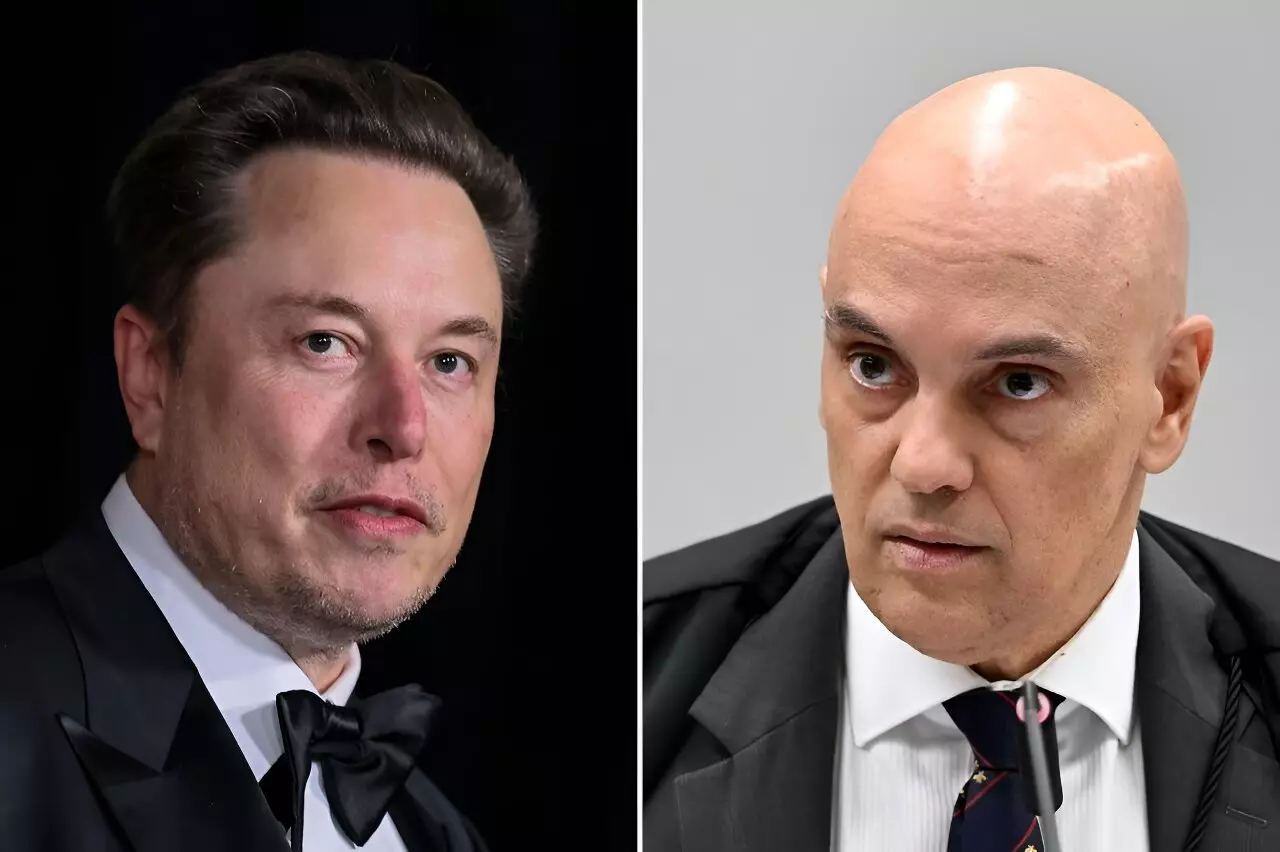The recent developments involving the social media platform X in Brazil represent a complex intersection of technology, governance, and societal values. Brazil’s Supreme Court, under Justice Alexandre de Moraes, has taken a decisive stance against X, led by billionaire Elon Musk, amid allegations of misinformation emanating from right-wing accounts. The platform faces ongoing suspension as it grapples with Brazilian legal requirements, demonstrating not just a battle over regulatory compliance but a broader discussion about the role of social media in democratic society.
A Brazilian judge has ordered X to submit further documentation within a tight timeframe of five days, emphasizing that the platform has not fully addressed the conditions for resuming services within the country. Justice Moraes, known for his vigorous approach in combating online disinformation, has previously issued fines against X totaling around $913,000 for its failure to comply with suspension orders. The suspension could be seen as a warning to other tech companies about the potential consequences of neglecting local regulations, especially regarding misinformation.
The ongoing dispute between Musk and Moraes is emblematic of larger global tensions concerning free speech and corporate responsibility. Musk has labeled Moraes as an “evil dictator,” suggesting a disregard for the rule of law in a democratic nation. On the other hand, the court insists that X poses a significant risk by allowing harmful content to proliferate unchecked, an assertion that finds support among political factions concerned about the integrity of Brazil’s democracy post-2022 elections. As X’s user base of over 22 million in Brazil confronts uncertainty, the situation underscores the escalating ideological rifts that can manifest through digital platforms.
The suspension of X has ignited polarized reactions within Brazil’s political landscape. Supporters of President Luiz Inacio Lula da Silva have praised the court’s intervention as necessary for safeguarding democratic values. Conversely, right-leaning factions, including supporters of former president Jair Bolsonaro, denounce the action as an infringement on freedom of expression. This schism highlights the delicate balancing act that governments must achieve in the digital age—protecting citizens from misinformation while respecting personal liberties.
Musk’s Satellite Ventures and Financial Implications
Adding another layer of complexity to this saga is the financial fallout affecting Musk’s other ventures in Brazil, including his satellite internet service, Starlink. The court’s decision to freeze assets connected to X and Starlink raises critical questions about the sustainability of tech investments in regions where regulatory tensions are palpable. The resolutions of these disinformation concerns—whether through compliance or continued resistance—will likely influence Musk’s broader operations in Brazil and beyond.
Ultimately, the predicament faced by X in Brazil illustrates a crucial moment in the discourse surrounding digital ethics. As platforms like X navigate the intricacies of local laws and the weight of social responsibility, the ongoing legal battle may set precedents that resonate for years to come. The outcome will serve not only as a litmus test of corporate accountability but also as a reflection of society’s commitment to upholding democratic values in the increasingly tumultuous digital landscape.


Leave a Reply